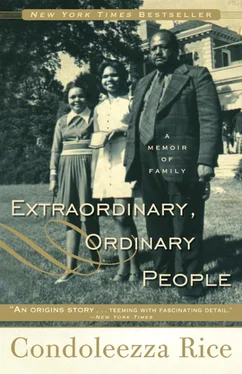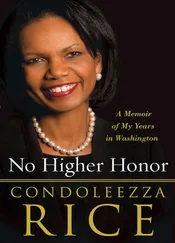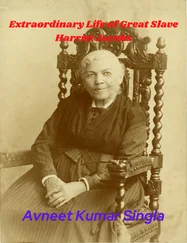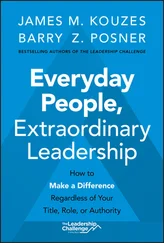While my mother’s family was landowning and settled, Daddy’s family lived the life of an itinerant preacher. As a result, my parents held very different views on the importance of land. Mother always wanted to own a house and sometimes, a little pointedly, reminded Daddy that he’d grown up moving from place to place and living in “other people’s houses.” Her family, on the other hand, had owned land. Daddy didn’t really care and felt a bit tied down by the financial responsibility of home ownership. While they did eventually own property and a house, their differences on this matter remained a source of some conflict throughout their marriage.
In any case, Granddaddy Rice worked mostly in Louisiana, founding a church and a school next door. Sometimes he found it necessary to work in Mississippi and Alabama, leaving the family behind for a few months in Louisiana. Granddaddy’s churches were successful because he was a powerful speaker. His sermons were intellectually sound and biblically based. He made it clear that he’d studied theology in seminary and was a fully ordained minister. In his sermons, there was none of the “whooping and hollering” emotion of the Baptists across town, who had no formal training. Granddaddy apparently delivered his sermons without notes. I once told my father that I was grateful that I’d inherited his exceptional ability to speak off the cuff. He told me that he was indeed good but not like Granddaddy. “You should have heard your grandfather,” he said. “He spoke in whole paragraphs.”
The Rice schools were even more successful than the churches. My grandfather believed that his schools could better educate black children than the miserable public schools of the day, and he sought funds from any source he could, whether it meant a few cents from parents in the community or fifty dollars from rich white people across town. Granddaddy Rice once told Daddy that “white guilt” was his best ally in funding his schools. But when a white church collected a bunch of old textbooks and “donated” them to my grandfather’s school, he politely declined. It was important, he explained, that his kids have the most up-to-date reading materials, just like the white students.
Granddaddy’s educational evangelism compelled him to go door-to-door in the poor neighborhoods around him and impress upon parents the importance of sending their kids to college. Then he would go to colleges—usually Presbyterian schools such as Stillman, Johnson C. Smith, and Knoxville College in Tennessee—and “make arrangements” for the kids to go there. In turn, he would recruit young teachers from the historically black colleges with which he had these relationships. He was zealously committed to education because he believed that it had transformed him, and he was determined to spread its benefits.
When it came to his own family, he was even more insistent. My father and his sister, Theresa, attended schools their father had founded most recently. When it came time for high school, Granddaddy placed his kids in Baton Rouge’s McKinley High, which in 1916 had graduated the first class of black students in the state of Louisiana.
Growing up, my father was a very good athlete but not a great student, as he remembered it. It was a struggle to get him to study, and he didn’t love to read, though he loved history and politics. For the most part, Daddy seems to have enjoyed less serious pursuits. He loved to play preacher. One day he and his sister re-created a funeral that their father had just conducted. They went to the church, set their dolls up in the pews, and laid one doll on the altar table to mimic a casket. Theresa was playing the piano, and my father had begun to preach when one of the dolls in the pew fell with a heavy thud. They ran out as fast as possible, sure that they’d somehow awakened the dead.
Daddy was an easygoing personality who didn’t always take life too seriously. He was a popular kid who would become an outgoing adult. His sister, Theresa, by contrast, was reclusive, brilliant, and determined to follow in her father’s intellectual footsteps. She would later go on to become one of the first black women to receive a doctorate in English literature from the University of Wisconsin. Thus I am not even the first PhD in my family.
Aunt Theresa wrote books on Charles Dickens, including one called Dickens and the Seven Deadly Sins . When I was about eight years old, we were visiting Aunt Theresa in Baton Rouge, where she was teaching at Southern University. When I saw that she was reading A Tale of Two Cities , I asked whether she’d ever read that book before. “I have read this novel at least twenty-five times,” she said. I remember thinking that this was a terribly boring way to spend one’s life. For years it soured my thoughts of being a professor, since I associated the vocation with the drudgery of reading the same book twenty-five times.
It took my parents a long time to finally tie the knot. They began “courting,” as my mother called it, almost immediately after meeting, but they did not marry for almost three years. I soon learned, both from their recollections and from stories told by others in the community, that these young sweethearts were apparently the talk of the town—while teaching their classes, my parents often passed notes to each other through student couriers.
The two young teachers were fully committed to their work. Mother taught English. Her former students remember her as a teacher whom you didn’t disobey despite her diminutive stature. She was a stickler for good grammar. She was the coach of the debate team and would enter her students in citywide oratorical contests. She also directed student plays and musicals, gaining a sterling reputation throughout the city for her efforts.
Her most famous student, though, was neither a debater nor a thespian. Mother taught American baseball legend Willie Mays and, despite her lack of sports acumen, knew that he was special. He recently told me that he remembered her well and recalled that she had told him early on, “You’re going to be a ballplayer. If you need to leave a little early for practice, you let me know.”
During my parents’ courtship, Daddy’s workday was completely tied up with sports. Daddy had studied athletic administration at the University of Wisconsin and put that knowledge to work by creating a comprehensive sports program. He started a girls’ basketball team, which he held to the same rigorous standards of technical excellence that he demanded of the boys.
The young couple also enjoyed an expansive social life outside of school. Birmingham was so segregated that most middle-class social activities took place in private homes and private social clubs. The few public spaces for blacks weren’t very desirable and were located in rough neighborhoods such as Fourth Avenue in downtown Birmingham. The area was known for drinking, knife fights, and “loose” women. Though my father seems to have gone to the movie theater in that part of town once in a while, my mother stayed away. In those days, there was a very clear distinction between “nice girls” and “bad girls,” and one had to be very careful about one’s reputation.
Fortunately, there seem to have been many private functions. Daddy was a member of Alpha Phi Alpha, the oldest black fraternity, which sponsored dances and parties. Thankfully, Daddy was a Presbyterian minister, not a Southern Baptist, and so dancing and even a little light drinking by the minister were quite acceptable to the congregation. To the end of his life, Daddy’s eyes would fill with tears when a band played “Stars Fell on Alabama,” which was always the last dance of the night.
My parents’ lives, before and after they were married, were also taken up with my mother’s younger siblings. Alto and Gee were high school students at Fairfield when Mother and Daddy were teaching there. Because of the age difference, my parents helped raise them. Gee, sandy-haired, pretty, and spirited, was a handful and challenged her parents, particularly her mother, about everything from what dress to wear to what party to attend. Daddy was often a shoulder to cry on and a wise counselor, someone both my aunt and her parents trusted.
Читать дальше












